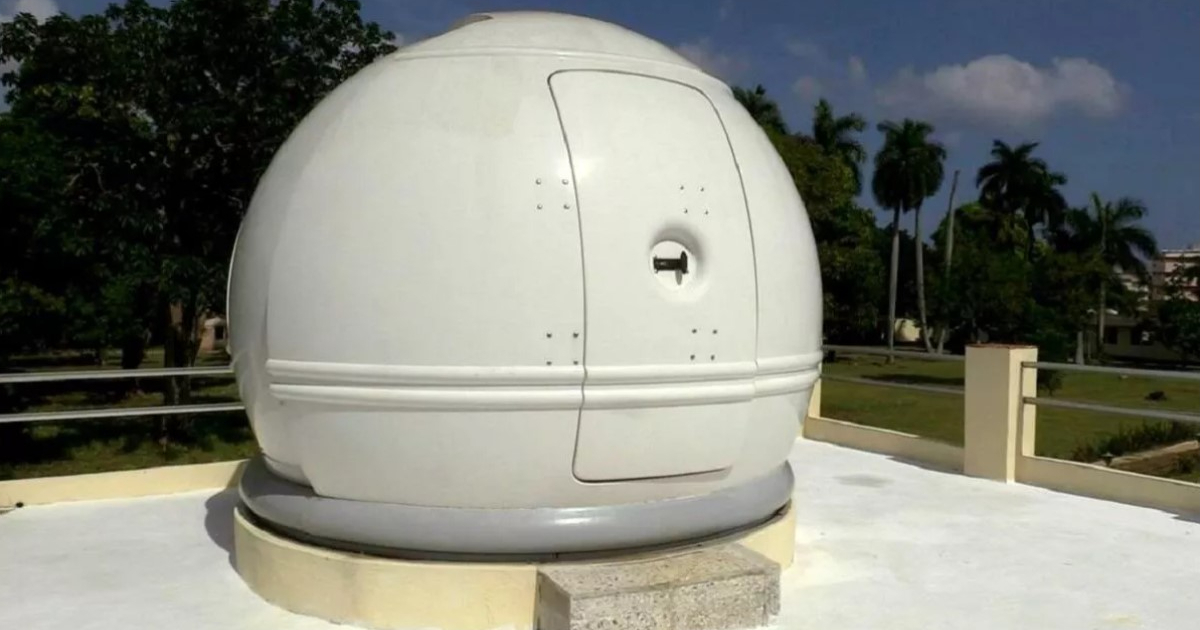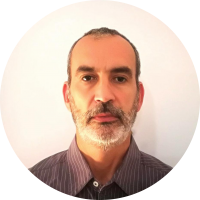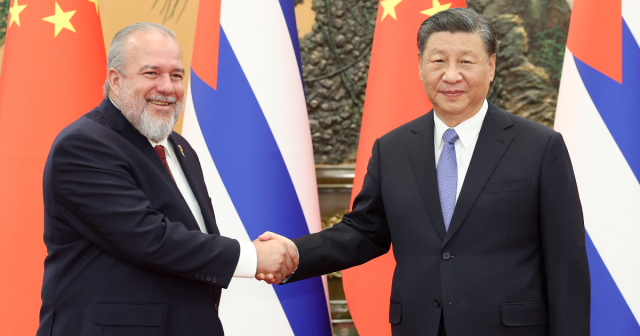
China would be interested in installing a telescope inthe astronomical observatory managed by Russians and Cubans on the Island, in addition to other dual-use technologies that would contribute to strengthening its military capabilities at a global level.
This was explained by the specialist in international collaboration from the Institute of Geophysics and Astronomy (IGA) of Havana,María Elena Muñiz Sánchez, in statements toSputnik, in which he advanced details of a memorandum of understanding between the Cuban regime and China.
According to what was published by the Russian media -subordinate to the Kremlin-, China would be interested in installing a telescope in Cuba, as well as theBeiDou positioning system, a technology similar to that of the United States' Global Positioning System (GPS), developed for military purposes (like American technology).
The installation of Chinese technology in Cuba, according toSputnik, would strengthen the studies carried out with Russia's Global Navigation Satellite System, known as Glonass, already used in the observatory.
Launched in October 1982, Glonass has 24 active satellites today. Functioning identical to the GPS system, the Russian navigation system was also initially developed for military purposes.
“The accuracy of the system has not yet been verified, but it is developed for military purposes, just as GPS was intended for the military,” he toldThe Epoch Times the former Huawei engineer,Jin Su, highlighting that BeiDou is an important part of China's missile system development and is primarily used to guide them to their target.
A 2020 report fromSouth China Morning Post indicated that BeiDou has been providing basic global navigation services since 2018. With the completion of its satellite launches, the system will greatly increase its positioning accuracy: from 10 meters to 10 centimeters. The GPS system, owned by the United States government and operated by its Air Force, has an accuracy of about 30 centimeters.
For the Asian engineer, the Chinese regime is promoting the BeiDou system to show its military strength. “The competition [between the United States and China] in the space field was foreseeable,” he said.
Apparently, the Cuban regime continues to bet on China in this technological competition with risky military and intelligence implications,despite the concern expressed by Washington in this sense.
It is striking that this sensitive and explosive information appears published in Russian media amid the silence of the Cuban regime regarding its cooperation with Russia and China.
Apparently, this is a “protocol” established by the regime ofVladimir Putin to make clear its decision-making power in matters that compromise the sovereignty of Cuba, like previous statements by senior Kremlin officials, such as the statements of the Russian vice-chancellor,Sergei Riabkov, who warned in January of last year thatdid not rule out a Russian military deployment in Cuba and Venezuela, including missiles, in response to the United States' support for Ukraine againstthe russian invasion.
The Cuban-Russian observatory, inaugurated in January 2022, allows obtaining wide-field images, covering a large number of objects. According toAntonio Alonso, Telecommunications engineer and IGA specialist, Cuba maintains continuous communication with the Russian experts who visit the island.
The expert indicated that the upcoming collaboration between Russia and Cuba foresees the installation of other telescopes: one of 25 centimeters and another of one meter in diameter, the latter a reflector, "which would contribute to the observation of weaker objects."
"If we take into account the distance between this receiving station and those located in Russia, we can carry out numerous studies, from increasing the precision of this system to the perception of movements of the Earth's crust," Alonso explained.
In the future, Cuban authorities plan to move the observatory to the Picadura Valley, in the western province of Mayabeque, "provided with dark sky conditions and little rainfall, compared to other regions of the country."
From there they will be able to contribute to the adjustments of BeiDou (Big Dipper, in Chinese), in the midst of the dangerous geopolitical game that the Cuban totalitarian regime is carrying out without taking into account the opinion of its citizens, andundermining the sovereignty of the nation in order to carry out their project of perpetuating themselves in power, believing that they are new stars in the firmament.
What do you think?
SEE COMMENTS (2)Filed in:






